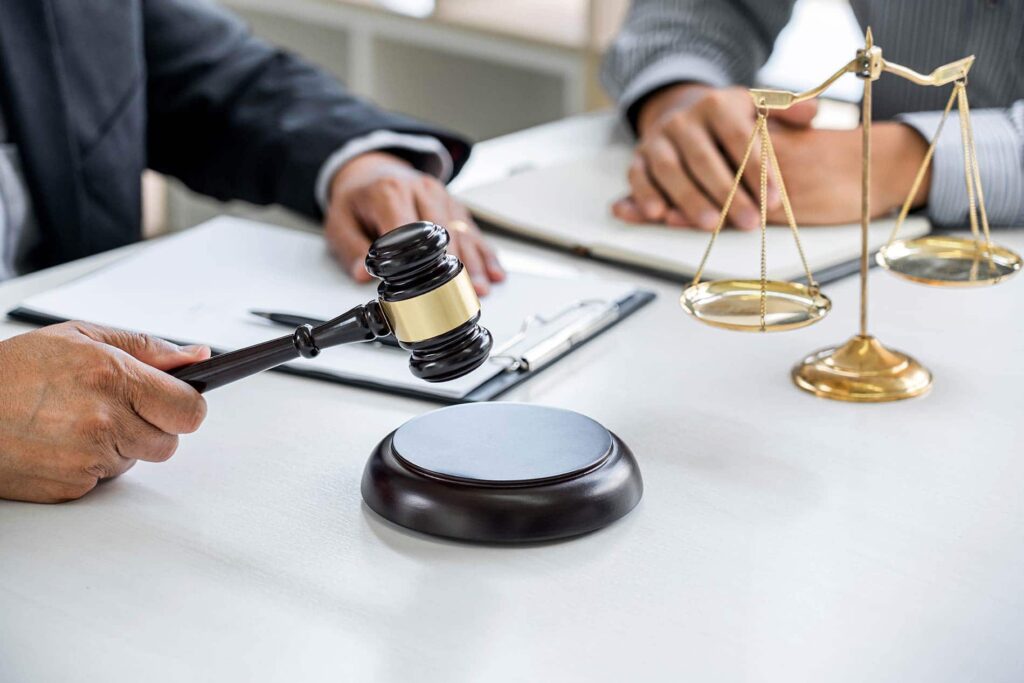Conveyancing is a crucial aspect of any property transaction. Whether you are buying or selling a property in Melbourne, understanding the basics of conveyancing is essential to ensure a smooth and successful process.
Understanding the Basics of Conveyancing
Conveyancing is a complex and crucial process in the world of real estate. It involves the legal transfer of property ownership from one person to another through Melbourne conveyancers. This intricate process encompasses a series of steps that must be followed meticulously to ensure a smooth and legally binding transaction.
What is Conveyancing?
Conveyancing, in simple terms, is the legal process of transferring the ownership of a property from one person to another. It involves a range of tasks, including preparing legal documents, conducting property searches, and handling financial transactions. These tasks are carried out by a conveyancer or a solicitor who specializes in property law.
During the conveyancing process, the conveyancer acts as an intermediary between the buyer and the seller. They ensure that all legal requirements are met, all necessary documents are prepared accurately, and all financial transactions are conducted securely.
Related: Navigating Complex Legal Matters

Importance of Conveyancing in Property Transactions
Conveyancing plays a vital role in property transactions, serving as a safeguard for both buyers and sellers. It helps ensure that the transfer of ownership is conducted legally and smoothly, protecting the rights and interests of all parties involved.
One of the key roles of conveyancing is to verify the property’s title. The conveyancer conducts thorough research to confirm that the seller has the legal right to sell the property and that there are no outstanding claims or disputes regarding its ownership. This step is crucial in preventing any future legal complications or disputes for the buyer.
Additionally, conveyancing involves conducting property searches to identify any potential issues that may affect the property’s value or use. These searches may include checking for planning permissions, environmental concerns, or any other factors that could impact the buyer’s decision or the property’s marketability.
Furthermore, the conveyancer ensures that all necessary documents are in order and properly prepared. This includes drafting and reviewing contracts, transferring funds securely, and registering the property with the relevant authorities. By meticulously handling these tasks, conveyancers minimize the risk of errors or omissions that could lead to legal complications in the future.
In summary, conveyancing is a vital aspect of property transactions that ensures the legal transfer of ownership and protects the interests of both buyers and sellers. It involves a range of tasks that require expertise and attention to detail. By entrusting the conveyancing process to a qualified professional, individuals can navigate the complexities of property transactions with confidence and peace of mind.
The Role of a Conveyancer in Melbourne
In the bustling city of Melbourne, where the real estate market is thriving, the role of a conveyancer is of utmost importance. A conveyancer is a professional who specializes in property law and handles the conveyancing process on behalf of their clients. With their expertise and knowledge, they navigate the complex legal landscape of property transactions, ensuring a smooth and hassle-free experience for their clients.
One of the primary duties of a conveyancer is to prepare legal documents. These documents include contracts, agreements, and transfer of title deeds. They meticulously draft these documents, ensuring that all legal requirements are met and that the interests of their clients are protected.
Conducting property searches is another crucial responsibility of a conveyancer. They delve deep into the history of the property, examining records, and investigating any potential issues that may affect the transaction. This thorough research provides their clients with a comprehensive understanding of the property they are purchasing or selling.
Liaising with other parties involved in the transaction is also a key aspect of a conveyancer’s role. They act as a mediator between the buyer, seller, real estate agents, and financial institutions. This ensures effective communication and coordination, minimizing any misunderstandings or delays that may arise during the process.
Furthermore, a conveyancer oversees the financial aspects of the transaction. They calculate and manage the settlement funds, ensuring that all financial obligations are met on time. This includes coordinating with banks or mortgage brokers to facilitate the smooth transfer of funds.
Why You Need a Local Conveyancer in Melbourne
When it comes to conveyancing in Melbourne, having a local conveyancer is highly beneficial. The city of Melbourne has its own unique property market, regulations, and procedures. A local conveyancer possesses in-depth knowledge of these intricacies, allowing them to navigate the process with ease.
With their familiarity with the local property market, a local conveyancer can provide valuable insights and advice to their clients. They understand the trends, prices, and potential risks associated with different areas in Melbourne. This knowledge helps their clients make informed decisions and ensures that they get the best possible outcome.
Moreover, a local conveyancer is well-versed in the specific legal requirements of Melbourne. They stay updated with any changes in legislation or regulations that may impact property transactions. By ensuring compliance with these local laws, they minimize the risk of any complications arising during the process.
Additionally, a local conveyancer has established relationships with other professionals in the industry. They have connections with local real estate agents, surveyors, and valuers, which can be advantageous during the conveyancing process. These connections enable them to gather information quickly and efficiently, saving their clients time and effort.
In conclusion, the role of a conveyancer in Melbourne is multifaceted and essential. They handle the legal intricacies, financial aspects, and coordination involved in property transactions. With their in-depth knowledge of the local property market and regulations, a local conveyancer ensures a seamless and successful conveyancing experience for their clients.

Top Tips for Navigating Conveyancing in Melbourne
Conveyancing in Melbourne can be a complex process, but with the right knowledge and guidance, it can be a smooth and successful experience. In this article, we will explore some top tips to help you navigate conveyancing in Melbourne effectively.
Choosing the Right Conveyancer
One of the most crucial steps in navigating conveyancing in Melbourne is selecting the right conveyancer. It is essential to choose a licensed professional with extensive experience in handling property transactions in Melbourne. This experience ensures that they are familiar with the local laws, regulations, and processes.
When choosing a conveyancer, consider their reputation, track record, and client reviews. A conveyancer with a proven track record of successful transactions and satisfied clients is more likely to provide you with a seamless conveyancing experience.
Additionally, it is important to have open and clear communication with your chosen conveyancer. They should be readily available to answer any questions or concerns you may have throughout the process. A conveyancer who is responsive and proactive in their communication can help alleviate any stress or confusion that may arise.
Preparing Essential Documents for Conveyancing
Before embarking on the conveyancing process, it is crucial to gather all the necessary documents. These documents play a vital role in the transaction and provide essential information about the property.
Some of the essential documents you will need for conveyancing in Melbourne include the contract of sale, title deeds, certificates of compliance, and any other relevant paperwork. These documents help establish the legal ownership of the property, disclose any encumbrances or restrictions, and ensure compliance with local regulations.
Organizing these documents in advance will streamline the conveyancing process and help avoid any delays. It is advisable to work closely with your conveyancer to ensure that all the necessary documents are obtained and properly prepared.
Understanding Fees and Charges
Conveyancing involves various fees and charges that need to be considered. It is essential to have a clear understanding of all the costs involved to avoid any surprises.
When engaging a conveyancer, they will provide you with an itemized breakdown of the expenses. This breakdown typically includes legal fees, government charges, and disbursement costs. Understanding these costs upfront will help you budget accordingly and plan for the financial aspects of the conveyancing process.
It is important to note that conveyancing fees can vary depending on the complexity of the transaction and the services provided. Therefore, it is advisable to discuss the fees and charges with your conveyancer before proceeding with the conveyancing process.
In conclusion, navigating conveyancing in Melbourne requires careful consideration and planning. By choosing the right conveyancer, preparing essential documents in advance, and understanding the fees and charges involved, you can ensure a smooth and successful conveyancing experience.
Common Challenges in Conveyancing and How to Overcome Them
Conveyancing, the legal process of transferring property ownership from one party to another, can be a complex and time-consuming endeavor. While it is typically handled by a conveyancer or solicitor, there are common challenges that can arise during the process. In this article, we will explore some of these challenges and provide tips on how to overcome them.
Dealing with Legal Issues
Legal issues can sometimes arise during the conveyancing process, posing potential obstacles to a smooth transaction. These issues can range from boundary disputes to unregistered easements. It is crucial to seek legal advice if any legal issues are identified to ensure that your interests are protected.
Working closely with your conveyancer, who is well-versed in property law, can help you navigate through these challenges. They will be able to provide guidance on the best course of action and help you find a resolution that is favorable to you.
Additionally, conducting thorough due diligence before entering into a property transaction can help identify any potential legal issues early on. This can involve obtaining property searches, such as local authority searches and environmental searches, to uncover any hidden problems that may affect the property’s value or your ability to use it as intended.

Managing Delays in the Conveyancing Process
Delays can occur during the conveyancing process due to various reasons, such as incomplete paperwork, financial setbacks, or third-party complications. These delays can be frustrating, especially if you are eager to complete the transaction and move into your new property.
One of the key ways to overcome delays is through effective communication and proactive involvement from your conveyancer. Stay in regular contact with them and address any issues promptly to keep the process on track. Your conveyancer can liaise with all relevant parties, including the seller’s conveyancer, mortgage lender, and other professionals involved, to ensure that everyone is working towards a timely completion.
It is also important to be organized and responsive throughout the conveyancing process. Provide all necessary documentation and information promptly to avoid any unnecessary delays. Being proactive and proactive in addressing any potential issues can help prevent them from escalating into major obstacles.
Furthermore, having a realistic timeline in mind and setting expectations early on can help manage frustrations. While every effort should be made to expedite the process, it is important to understand that certain factors, such as the complexity of the transaction or external circumstances, may cause unavoidable delays.
By being aware of these common challenges and taking proactive steps to address them, you can navigate through the conveyancing process with greater ease. Remember to seek professional advice and assistance when needed, as conveyancers and solicitors are experienced in handling these challenges and can provide valuable guidance throughout the process.
The Future of Conveyancing in Melbourne
Impact of Technology on Conveyancing
Technology is revolutionizing the conveyancing process in Melbourne. With the advancement of online platforms and digital signatures, the process has become more efficient and seamless. Embracing these technological advancements can enhance the overall experience and speed up the transaction process.
Predicted Trends in Melbourne’s Conveyancing Landscape
As Melbourne’s property market continues to evolve, so does the conveyancing landscape. Some predicted trends include increased automation, improved integration of data and analytics, and the potential use of blockchain technology to enhance transparency and security.
In conclusion, navigating conveyancing in Melbourne requires a thorough understanding of the process and the expertise of a reputable conveyancer. By following these top tips and being aware of the challenges and future trends, you can ensure a successful and stress-free property transaction.

